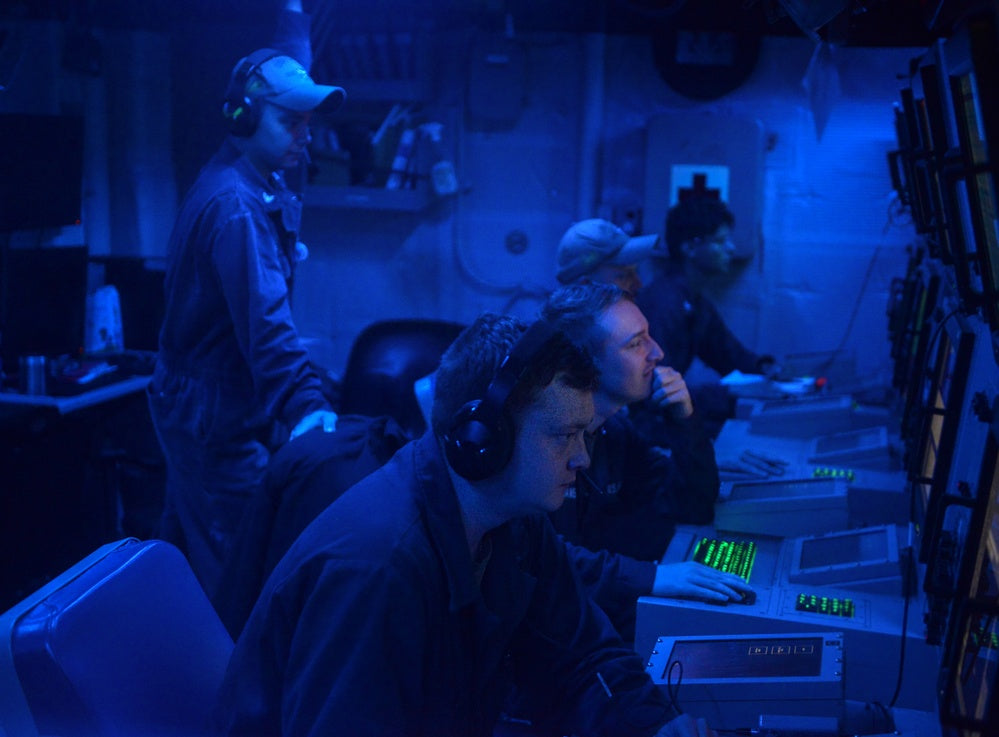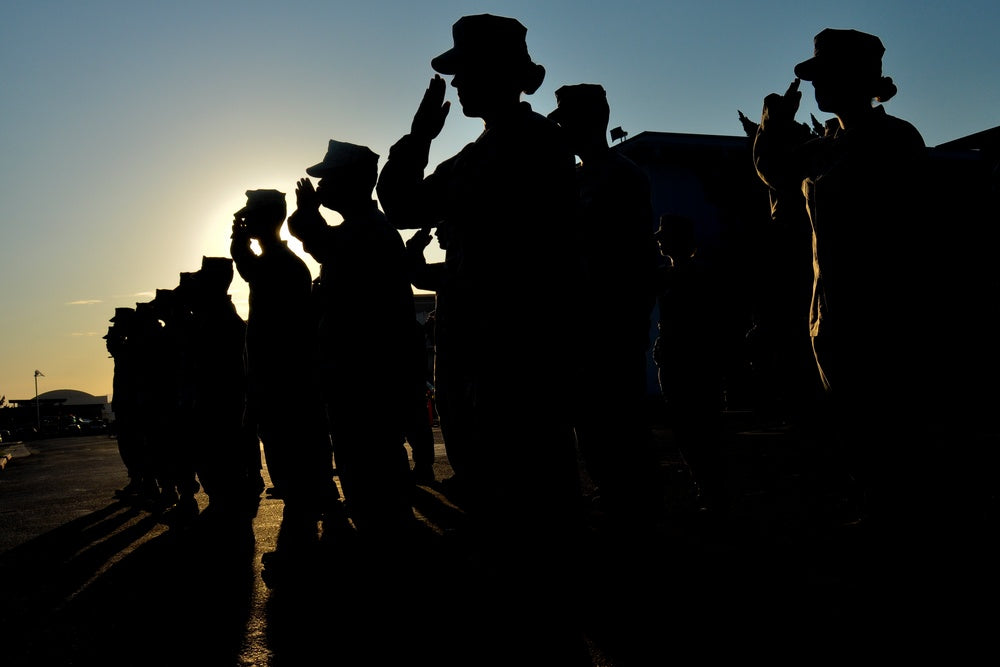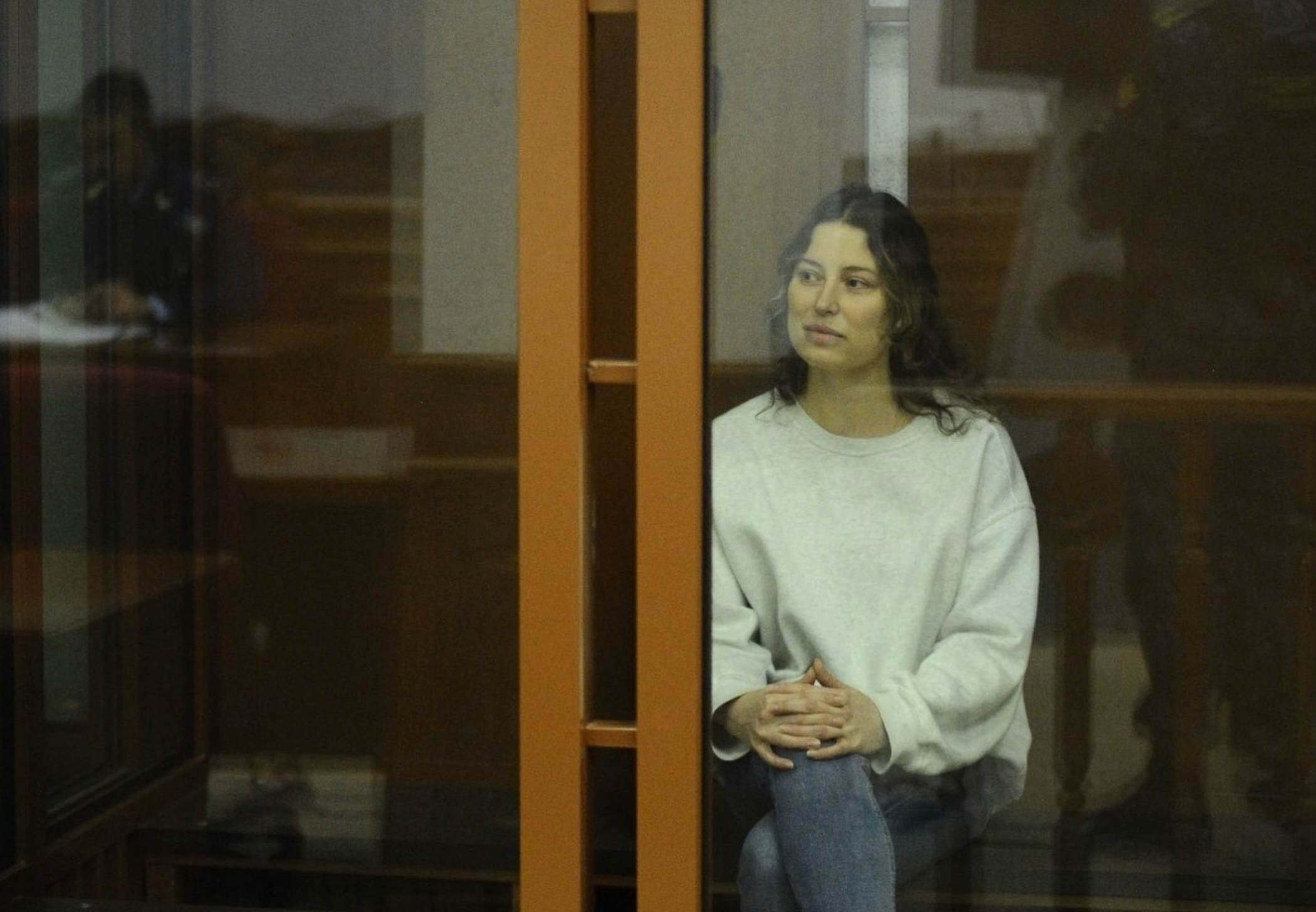
Australia, Britain, US drop defense trade barriers to propel AUKUS
PHOTO CAPTION: Illustrative photo — Sonar Technicians monitor the screens aboard the Arleigh Burke-class guided-missile destroyer USS Lassen (DDG 82) during a training exercise, Sept. 16, 2022. (U.S. Navy photo by Mass Communication Specialist 1st Class Mitch Meppelink via U.S. Defense Visual Information Distribution Service)
By Kirsty Needham
SYDNEY (Reuters) - Australia, the United States and Britain have removed significant barriers on defence trade between the AUKUS partners and opened the way for faster approvals for highly sensitive technologies, Australian officials said.
The move is seen as a significant step for Australia to acquire U.S. nuclear-powered attack submarines and jointly develop with the U.S. and Britain a new class of conventionally armed, nuclear-powered submarine over the next two decades.
The AUKUS partners are also developing advanced defence technology spanning hypersonic missiles, undersea drones and quantum technologies, with the reforms expected to speed up the transition of these projects from research to production.
The United States is Australia's closest security ally, but had restricted sharing of closely guarded defence technology, which is governed by the U.S. International Trafficking in Arms Regulations (ITAR).
There had been delays by the U.S. State Department in finalising exemptions for Australia and Britain under ITAR, which required the AUKUS partners to show they had export control regimes equivalent to the United States.
Eliminating the need for export licences for much defence technology will take effect from Sept. 1, Australian officials said on Thursday, with Defence Minister Richard Marles calling it a "generational change".
"These critical reforms will revolutionise defence trade, innovation and cooperation, enabling collaboration at the speed and scale required to meet our challenging strategic circumstances," he said in a statement.
The U.S. issues around 3,800 defence export control licences for Australia each year which have taken up to 18 months to approve, while approvals in Britain have taken 100 days.
From next month, 70% of defence exports from the U.S. to Australia previously under ITAR will be licence free.
An Excluded Technologies List will be released by the U.S. showing sensitive technologies that will continue to require a licence, to be reviewed annually.
The U.S. State Department will have a 45-day window to decide on the transfer of technologies on the excluded list between governments and industry, and 30-days for government-to-government transfers.
Over 80% of goods subject to control by the U.S. Commerce Department as "dual use" military and civilian technologies will also become licence free for Australia from September.
Australia has eliminated 900 export permits on defence goods worth A$5 billion to the U.S. and Britain, officials said.
Under a deal signed in 2021, the United States will sell Australia between three and five Virginia-class attack submarines from the early 2030s as a stopgap while Australia and Britain build a new SSN-AUKUS class, that will include U.S. technologies, due roughly a decade later.
(Reporting by Kirsty Needham in Sydney; Editing by Crispian Balmer)









